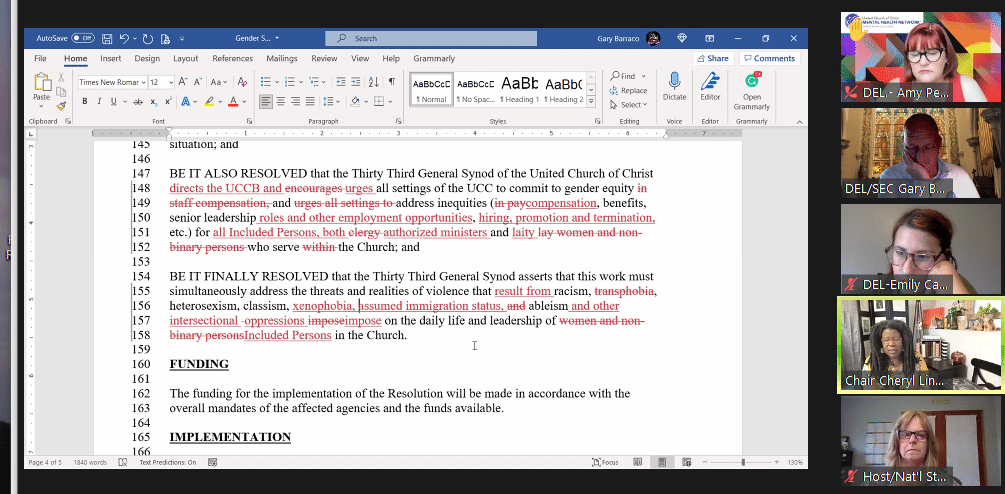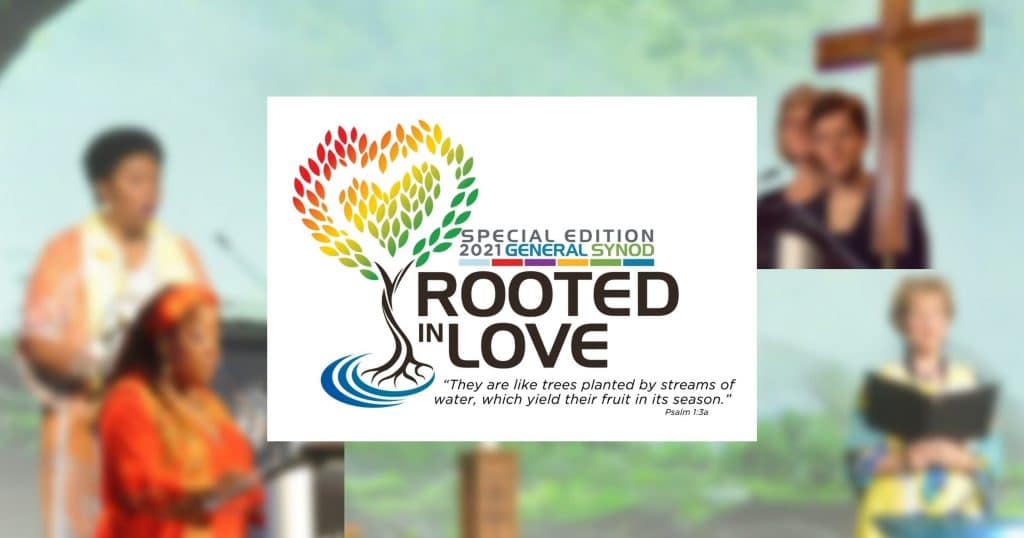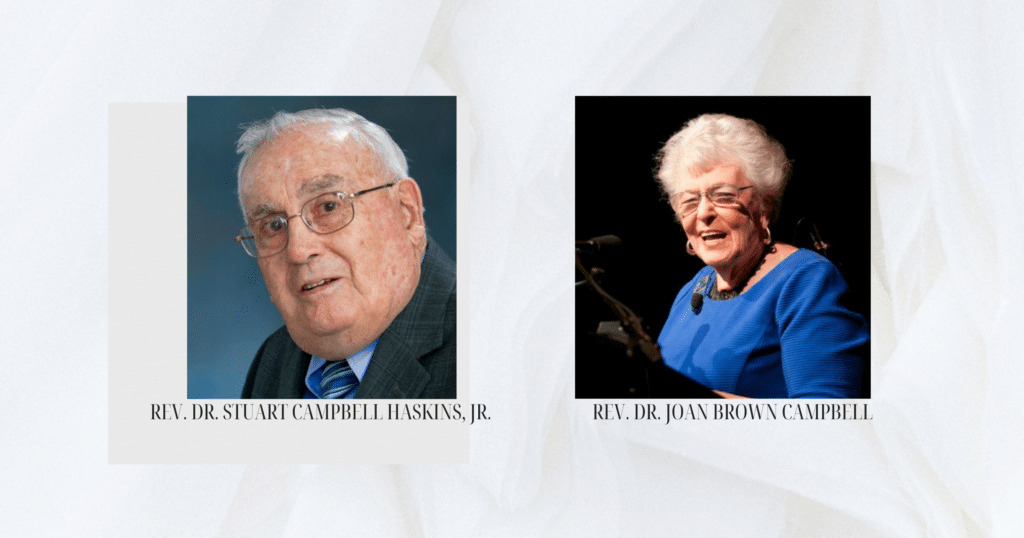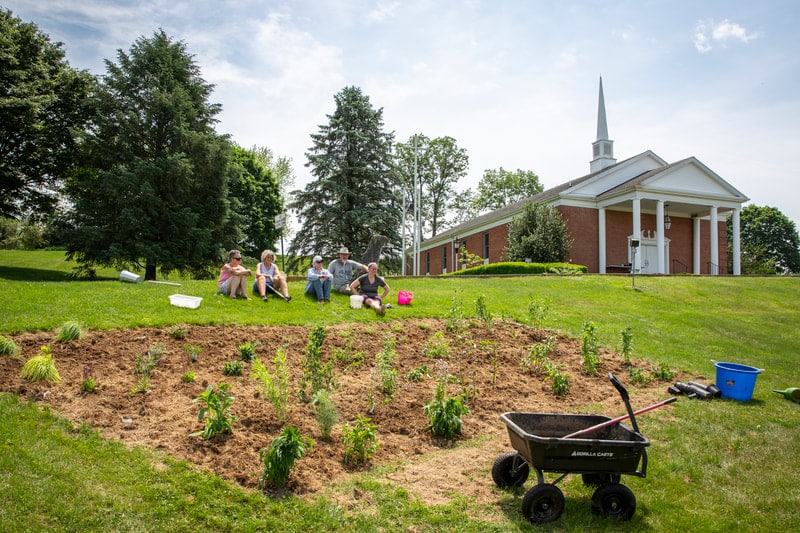Synod resolves to address gender safety and equity
The General Synod of the United Church of Christ July 17 overwhelmingly adopted — without debate — a resolution that calls on the UCC Board and all of the denomination’s settings to explore ways to promote gender safety and equity for women and other persons who are subjected to harassment and discrimination based on their gender orientation.
The resolution, brought by the Central Pacific Conference, was originally directed toward the concerns of women and nonbinary people. But during the committee session, the language of the resolution was broadened to address harassment and discrimination against a larger group of “included people,” defined in the resolution as “women, transgender, gender-expansive, nonbinary, genderqueer, gender fluid, gender non-conforming, and two-spirit persons,” both lay and authorized ministers.

The resolution also confessed the denomination’s “complicity, active participation with, and passive acceptance of systems of sexism, misogyny, transphobia, and gender oppression that inhibit leadership.” It was amended in committee to direct the UCC Board to take action to address the problems, and urged all settings, “including (but not limited to) local congregations, Committees on Ministry, and Justice and Local Church Ministries Teams,” to address the issues that were identified.
The resolution affirmed the “physical and sexual autonomy of the Included Persons:” the right “not to have any other person invade their personal space without permission, the right not to be touched, or abused, either emotionally or physically, in any way by another person; the right to express gender in the ways they choose; the right to communicate autonomously, without reproach or censure based on sexism, misogyny, transphobia and gender oppression; the right to expect that any such action will in no way be held against them for any reason in the workplace, including all ministry settings, or in any social situation. . . .”
‘Church isn’t a safe space’
The resolution called on all settings of the UCC to commit to gender equity in “compensation, benefits, senior leadership roles, other employment opportunities, hiring, promotion, and termination, . . .” It also asserted that this work must simultaneously address “the threats and realities of violence that result from racism, heterosexism, classism, xenophobia, immigration status (real and assumed), ableism and other intersectional oppressions” that “impose on the daily life and leadership of Included Persons in the Church.”
The committee supported the overall thrust of the original resolution, and spent most of its committee time on fine-tuning the language of the resolution.
In supporting it during the plenary, the committee’s chair, the Rev. Cheryl Lindsay, pastor of First Congregational UCC of Wellington, Ohio, said, “The church isn’t a safe space. Shouldn’t it be? So many of our faith communities do the work of making the world a safer place, a more just place, a more liberated place. The question before us is do we practice what we preach? Do we see the injustice within our own congregations and other ministry settings?”
The word is ‘transgender’
Lindsay added that “far too many” of the persons supported by the resolution “experience discrimination, harassment, and abuse within our spaces and repercussions or silence when attempting to receive recognition, repair, and redress for these offenses. It may manifest in lower pay or lack of opportunities. It’s the comment about appearance, the disregard for personal space, and even physical violence.”
“We, the church, have a responsibility to the safety, well-being, and just treatment of all of our siblings,” she said. “Let us hold ourselves to the same standards we proclaim. In the era of #metoo, it’s time for the church to say, ‘no more and not on our watch.’”
Lindsay began her report on her committee’s deliberations by addressing what she said was the “misinformation and harm that unfortunately arose” from the pre-recorded video educational intensive associated with her committee’s resolution. In reviewing the ways persons identify themselves, the speaker had used the term “transgendered.” Lindsay said, “We affirm that no one is ‘transgendered’ any more than anyone is ‘maled ‘or ‘femaled’ and we affirm that transgender persons, our siblings, are beloved by God.” She apologized and said she regretted any harm that was caused.
Brainstorming what’s next
After plenary session in which the Synod approved it, the resolution was discussed further in a new “implementation conversation” to review ways of implementing resolutions that came before the Synod.
The Rev. Tyler Connoley, conference minister of the Central Pacific Conference, shared the ways his conference had begun working to implement its own resolution. Connoley said that he had decided that it was “part of my responsibility as a conference minister to lift [the resolution] up and speak to it, and be more intentional about listening and hearing and believing people, and making spaces for these kinds of issues to be brought forward.”
Participants in the implementation discussion, which included current and former national staff members, Conference ministers, local church pastors and others, then divided into small breakout rooms on Zoom to share their concerns and ideas. Near the end of the hour-long session, they came back together to share their insights. Many persons expressed the need for better training and the updating of boundary training to reflect new issues. But one interim conference minister noted the need for attention to the context of a church or Conference, observing that not every congregation was as diverse or sensitive to the issues surrounding gender diversity as were persons in the national setting.
Connoley ended the session by showing a video of the Rev. Elizabeth Durant, co-chair of his conference’s Justice & Witness Ministry Team and interim pastor at Gethsemane Lutheran Church (ELCA) in Portland, Ore. Durant described how her own experiences as a victim of childhood sexual abuse and later as a pastor, as well as the events that inspired the #metoo movement, had led her to draft the resolution. “Church is a dangerous place to serve,” she said, “but it doesn’t have to be.”
Connoley echoed Durant’s call. “So, let’s get to work!” he said.
Sara Fitzgerald, General Synod Newsroom volunteer, is a member of Rock Spring Congregational UCC in Arlington, Va.
Related News
Peace Be With You…
“…And also with you” is the response on Sunday mornings and on occasions where the peace...
Read MoreBreaking barriers and forging loving partnerships: Two servants of God are remembered
This Eastertide, the United Church of Christ remembers the Rev. Dr. Joan Brown Campbell and...
Read MoreGetting down and dirty in the soil: Rural congregation discovers ‘life has the last word’
The Rev. Julia L. Brown has a love/hate relationship with this time of year. “I dislike...
Read More



